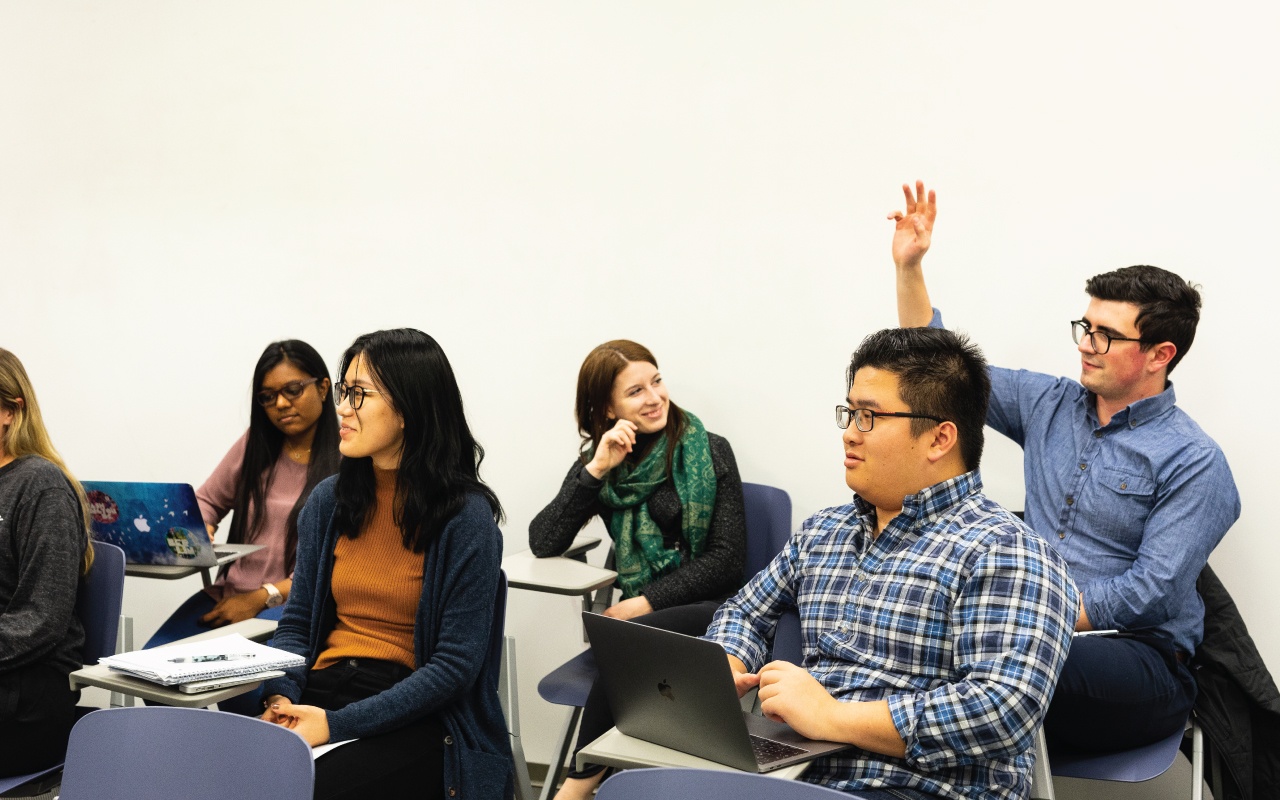
Leaving Russia, my home country, and coming to NYU as an international student has been one of the most rewarding experiences so far. I made friends from all over the world, took classes across many disciplines, and learned how to take care of my own needs (and do other adult-ish things). More importantly, moving away really opened my eyes. The world turned out to be much larger than I expected, with many doors yet untouched, stories untold, and places unexplored. Moving away is scary, and your life does turn upside down, but throughout this journey, you will learn a lot about yourself, your passions, the people around you, other cultures, and the world! It is not an easy one, so I hope the information in this article helps you navigate your journey as an international student at NYU or another US university.
Are You Applying to NYU as an International Student?
NYU is home to people from over 130 different countries. No matter where you apply from, everyone is held to the same standards. The application process is pretty much the same for all first-year applicants, whether you are Brazilian, Russian, Japanese, German, or American. However, there are two things international applicants should consider: English language testing and standardized testing.
If you are applying to NYU Abu Dhabi, check out this page! If NYU Shanghai is your top pick and you are a Chinese citizen, then check out this one! And, if NYU Shanghai is your dream school and you are not a Chinese citizen, then here is the page for you!
But, if you want to go or are going to NYU in New York City, keep reading. 😃
Application Difference #1: English Language Testing
- English language testing. If at the time of application submission to NYU, you have not completed at least three years of study in a school where English is the primary language of instruction, you need to submit a proof of English proficiency. You can do so by taking one of these exams: IELTS Academic, TOEFL iBT, Duolingo English Test, PTE Academic, iTEP, C1 Advanced, or C2 Proficiency.
Important: The results for these tests are valid for only two years, so make sure that two years havenʼt yet passed since your exam date when submitting an application to NYU (or any other university)! Also, for my friends from China, choose your test wisely as results from the IELTS Indicator or the TOEFL ITP Plus for China Solution are not accepted at NYU!
Application Difference #2: Standardized Testing
- Standardized testing. If the first one means more work, this one might mean the opposite to you! If you are familiar with the US system of education, you might have heard that in most cases, you are required to submit your SAT or ACT scores to be considered for admission. Due to NYUʼs very flexible testing policy, your options are not limited to just the SAT or ACT. There are many ways to fulfill the testing requirement!
Important: You can submit your predicted scores from the International Baccalaureate (as I did), European Baccalaureate, or the French Baccalauréat (alongside your final bac results for Première) as well as GCSE/IGCSE/O Level official results and many more. Use this tool to figure out how to fulfill the testing requirement for your country!
Best news ever: If you are applying to NYU in the 2021–2022 cycle (hi, rising seniors!), you are not required to submit test scores. Whether you choose to submit them or not, your application will not be affected. Here is the official statement from our assistant vice president of undergraduate admissions, Jonathan B. Williams.
Majors, Employment, and Postgraduation
Let me explain how these are related!
As an international student, while pursuing an undergraduate or graduate degree, you have an opportunity to work on campus. You can work as an Admissions Ambassador (the most fun on-campus job, but I might be biased), research assistant, resident assistant, office assistant…you get the gist. There are many options, all of which you can find on Handshake—NYUʼs career development platform. You can work up to 20 hours a week at the rate of at least $15 an hour.
However, if you would like to intern or work off campus, you will most likely need work authorization. But thatʼs nothing you canʼt figure out, especially with the help of our Office of Global Services. During your undergraduate career, you can intern or work in the United States for a total of 12 months. Moreover, postgraduation, you have the option to apply for another 12 months, thus extending your work authorization. If you are a student with an F-1 visa, you have two options: Curricular Practical Training (CPT) and Optional Practical Training (OPT). I was very confused when I just started at NYU, so letʼs figure out what all of this means together!
CPT vs. OPT
Curricular Practical Training (CPT):
- Allows you to work and intern off campus for 12 months!
- Must be directly related to your major or area of study.
- Example: If Engineering is my major, then my internship or job has to do something with engineering. Liberal arts students have more flexibility!
- Can only be used during your undergraduate career, not before or after.
- You have to earn academic credit.
- You have to have a job offer before you apply for CPT.
Optional Practical Training (OPT):
- Allows you to work and intern off campus for 12 months postgraduation!
- Must relate to your major or area of study.
- You do not need to have a job offer before your apply for OPT.
- If your major qualifies for STEM OPT*, you can apply for an additional 24-month extension!
*Majors that qualify for STEM OPT are listed here. This list is determined by the US government and incorporates traditional science fields (e.g., mathematics, engineering, and chemistry) as well as some areas that you donʼt typically think of as science, such as classical civilization, classics and art history, journalism, and linguistics!
Depending on your goals, this is something you might want to consider!
NYU Resources for International Students
NYU Office of Global Services (OGS)
- Get all of your immigration and visa questions answered!
- You can schedule one-on-one advising appointments and attend group workshops that help you navigate your international student experience in the United States.
NYU Wasserman Center for Career Development
- Get help with anything career related, from résumés and cover letters to networking and getting hired!
- Similar to OGS, you can book one-on-one coaching sessions or participate in different mentorship events.
NYU International Student Center
- Cross-cultural events, programs, leadership retreats, networking events, Global Buddies (peer connections between international and US students), faculty mentorship, exploring New York City—all that alongside your international peers!
Cultural Clubs at NYU (plenty of options here!)
- Asian Cultural Union
- Bengali Student Association
- Black Student Union
- Caribbean Students Association
- European Society
- Indian Cultural Club
- Indonesian Students Association
- Japanese Cultural Association
- Pakistani Students Association
- Persian Cultural Society
- Russian Club
- Taiwanese Student Association
- Armenian, Brazilian, Chinese, Ecuadorian, Haitian American, Malaysian, Puerto Rican, Thai, Singaporean…and many more! You will find those who look like you, speak like you, dress like you—I promise!
- Marcelo Barros, the founder of International Advantage, originally from Brazil, helps international students stand out and find jobs in the United States postgraduation. Every year, he comes to the NYU Wasserman Center for Career Development to share some tips and tricks on how to get hired! Following his LinkedIn page, attending his NYU event, or reading his book can be a great start to understanding how the system works. 😃
You got this, friends! There will be obstacles, but the journey will be rewarding. You will learn a lot about yourself, the world, and the value of a global education. Best of luck!





